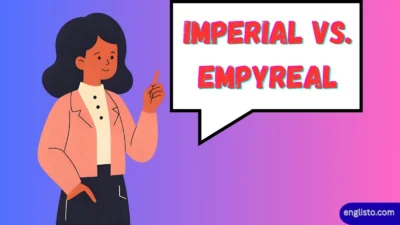When it comes to expressing joy and acknowledgment, few phrases are as universal as “Congratulations!”. Yet, the moment you attach a preposition, you step into tricky territory: should you say “Congratulations on” or “Congratulations for”? Both forms exist in English, but they’re not always interchangeable. The right choice often depends on grammar rules, context, tone, and the nuance of the event you’re recognizing. Congratulations On vs Congratulations For.
This in-depth guide explores the difference between congratulations on and congratulations for, enriched with real-life examples, grammar explanations, synonym tables, and cultural insights. By the end, you’ll not only know which phrase to use but also sound more natural, polished, and confident in both written and spoken communication.
Why Prepositions Matter in “Congratulations” Expressions
Prepositions may look small, but they carry big meaning. In English, choosing the wrong preposition can lead to awkward or incorrect sentences.
- Congratulations on → emphasizes the event, achievement, or noun.
- Congratulations for → emphasizes the action, effort, or verb.
Think of it this way: “on” points to the thing accomplished, while “for” highlights the *reason or cause behind it.
Congratulations On: The Classic and Widely Accepted Form
“Congratulations on” is the most standard, widely taught, and globally accepted phrase. It focuses on the event, accomplishment, or milestone itself.
Examples of Usage
- Congratulations on your promotion!
- Congratulations on winning the marathon.
- Congratulations on your wedding.
- Congratulations on graduating from college.
Notice how in each case, the word after “on” is a noun or gerund (-ing form) that describes the event.
Grammar Rule
- Use on + noun (graduation, success, promotion).
- Use on + -ing verb (gerund) when referring to an action (winning, finishing, passing).
Congratulations For: Praising Effort and Action
“Congratulations for” is less common in formal English but still acceptable in certain contexts. It focuses on the reason or effort behind the achievement, rather than the event itself.
Examples of Usage
- Congratulations for working so hard on this project.
- Congratulations for showing such perseverance.
- Congratulations for finishing in record time.
- Congratulations for dedicating yourself to the team’s success.
Grammar Rule
- Use for + verb (-ing) when highlighting the effort or action.
- Less often, use for + noun when emphasizing qualities (for your dedication, for your patience).
Quick Comparison Table
| Phrase | Focus | Structure | Example |
| Congratulations on | Event, accomplishment, milestone | on + noun / gerund | Congratulations on your new home. |
| Congratulations for | Action, effort, behavior, qualities | for + verb (-ing) / noun | Congratulations for trying so hard. |
Nuances and Idiomatic Usage
- Native speakers naturally favor “congratulations on” in most everyday situations, especially when referring to milestones like weddings, graduations, or promotions.
- “Congratulations for” works better when the focus is on effort, qualities, or behavior rather than the actual event.
- Some grammarians argue that “congratulations for” can sound slightly clunky or less idiomatic, but it’s not incorrect.
Idiomatic Expression
Imagine your friend just got a job:
- On: “Congratulations on your new job!” (celebrating the event).
- For: “Congratulations for impressing the recruitment team with your skills!” (celebrating the effort).
Common Mistakes Learners Make
- Using “for” instead of “on” for events
- ❌ Congratulations for your wedding.
- ✅ Congratulations on your wedding.
- ❌ Congratulations for your wedding.
- Forgetting to use a gerund after “for” when talking about actions
- ❌ Congratulations for win the race.
- ✅ Congratulations for winning the race.
- ❌ Congratulations for win the race.
- Mixing them interchangeably without context
- While both may sometimes work, choosing the right preposition shows proficiency and awareness.
- While both may sometimes work, choosing the right preposition shows proficiency and awareness.
Real-Life Scenarios: Which One to Use?
Professional Settings
- Promotion: “Congratulations on your promotion!” (correct, event-focused).
- Effort: “Congratulations for leading the marketing team so effectively.”
Academic Contexts
- Graduation: “Congratulations on graduating!”
- Thesis Defense: “Congratulations for your excellent research and presentation.”
Personal Occasions
- Marriage: “Congratulations on your marriage!”
- New Baby: “Congratulations on the birth of your child!”
- Effort: “Congratulations for being such a supportive partner during the pregnancy.”
Cultural and Linguistic Notes
Different languages use different prepositions with their equivalents of “congratulations.”
| Language | Word for Congratulations | Typical Preposition/Structure | Example |
| Spanish | Felicidades / Enhorabuena | Often no preposition | ¡Felicidades por tu graduación! |
| French | Félicitations | avec / pour | Félicitations pour ton prix. |
| German | Herzlichen Glückwunsch | zu | Herzlichen Glückwunsch zu deiner Hochzeit. |
| English | Congratulations | on / for | Congratulations on your success. |
This shows how prepositional choices vary across cultures, which can influence non-native speakers’ errors in English.
Synonyms and Alternatives to “Congratulations”
Sometimes, varying your language makes your message more heartfelt.
| Formal Alternatives | Informal Alternatives | Creative Phrases |
| Well done on | Kudos for | Hats off to you |
| Best wishes on | Nice job with | High five for |
| I applaud you for | Way to go | Props for |
| Heartfelt congratulations on | Good going | Cheers to your success |
Business and Marketing Applications
In the workplace, congratulatory messages boost morale, acknowledge effort, and strengthen company culture.
- Recruitment Drives: “Congratulations on being selected for the role at TCS!”
- Sales Wins: “Congratulations for closing the biggest deal of the quarter.”
- Team Achievements: “Congratulations on reaching the fundraising goal.”
Well-phrased congratulations foster connection, leadership presence, and positive communication.
Social Media and Personal Messages
Tone and brevity matter on platforms like Facebook, Twitter, and LinkedIn.
- Facebook Post: “Congratulations on your graduation, Sarah! You’ve worked so hard.”
- LinkedIn Post: “Congratulations for showing such determination in leading the Phoenix project.”
- Twitter/X: Keep it short: “Big congrats on your championship win, Tara!”
Personalization adds warmth. Mentioning the specific event or effort makes the message stand out.
Exceptions and Special Cases
- Occasionally, “congratulations for” can sound natural in informal speech, especially when praising effort.
- In academic writing or formal speeches, stick to “congratulations on.”
- In idiomatic English, you’ll almost never hear: “Congratulations for your wedding.”
Key Takeaways
- Use “congratulations on” when referring to milestones, events, and accomplishments.
- Use “congratulations for” when referring to effort, qualities, or actions.
- Context, tone, and audience determine the better choice.
FAQs
Q1: Is “Congratulations on” always correct?
Yes, for events and achievements, it’s always safe to use “on.”
Q2: Can “Congratulations for” ever be wrong?
It’s not wrong, but in many milestone contexts, it sounds less natural.
Q3: Do Americans and British speakers differ in usage?
Both prefer “on,” but “for” occasionally appears in American English to praise effort.
Q4: Can I use “congratulations on” with verbs?
Yes, but the verb must be in the -ing form (gerund): Congratulations on finishing first.
Q5: What about informal spelling like “congradulations”?
That’s a common misspelling. The correct spelling is always congratulations.
Conclusion
When in doubt, remember this simple rule:
- Say “Congratulations on” for the event.
- Say “Congratulations for” to highlight effort.
Both forms are part of natural English, but choosing wisely shows grammar proficiency, cultural awareness, and effective communication skills. Whether you’re writing a heartfelt card, a LinkedIn post, or a company announcement, the right preposition makes your message shine with clarity and sincerity.



